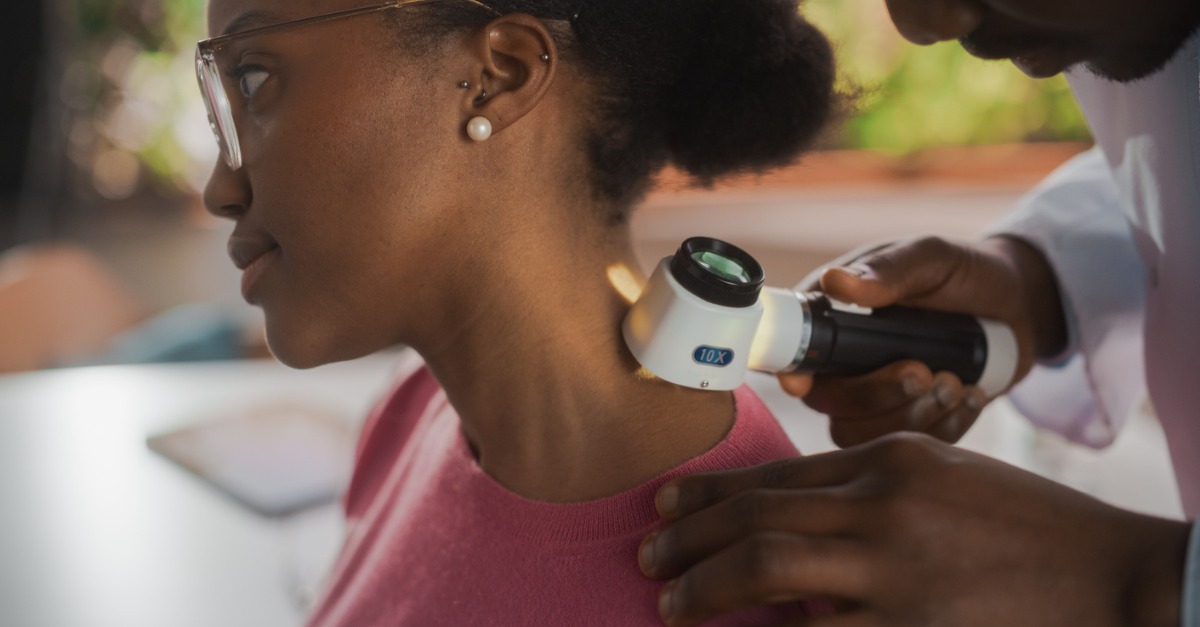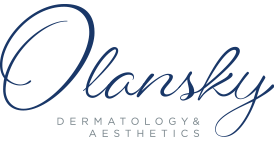As with other health conditions, the causes behind skin diseases often involve a complex interplay of factors. Many skin conditions can be attributed to lifestyle and environment, for instance, while some serious diseases, such as melanoma, may correlate with genetics.
To prioritize your skin and overall wellness, we recommend routine screenings for skin cancer — especially if your family has a history of skin abnormalities. Here’s a closer look at skin conditions with a genetic link and how we can help.
Common Genetic Skin Diseases
Rosacea
Establishing a genetic link for rosacea has proven challenging. In 2015, researchers at the Stanford University School of Medicine collaborated with the genetics company 23andMe to identify potential hereditary causes of rosacea. Only two genetic variants for rosacea were found in the genome being studied, but the research team noted an opportunity to look further into the relationship between genes and the skin condition.
More research may especially be warranted, as another study conducted by Case Western Reserve University discovered a potential genetic link for rosacea between twins, wherein identical twins were more likely to share the skin condition than those who were fraternal.
Though the full causes of rosacea are currently unknown, recent evidence indicates people with rosacea are four times more likely to have a family history of the condition than people who don’t have it.
Psoriasis
Many experts agree that psoriasis is connected to genetics, as researchers have identified over two dozen genes that may contribute to the condition. Though environmental factors may also combine with environmental ones to cause psoriasis, genetics play a role in most cases.
Skin Cancer
Several forms of skin cancer correlate to genetics. Most of these associations are found in melanoma, the rarest but most aggressive form of skin cancer. According to the Skin Cancer Foundation, for example, one in every ten patients diagnosed with melanoma has a family history of the condition.
If you have a family history of skin cancer and have noticed unusual moles, talk to your provider right away about the potential for familial atypical multiple mole melanoma syndrome (FAMMM). This syndrome may greatly increase your risk of melanoma, which could warrant genetic counseling and more comprehensive prevention strategies, such as frequent skin cancer screenings.
Treatment for Genetic Skin Diseases
Unfortunately, genetic skin and autoimmune disorders are not preventable. But there are often many treatment options available for people living with these and other conditions. In certain cases, for example, gene therapy may be beneficial. In this still-novel process, genetic materials are introduced to your cells to alter gene expression and thus reduce your risk of serious conditions.
Topical acne treatments have also been proven to assuage symptoms of ichthyoses skin disorders, which are largely genetic. Retinoids (synthetic vitamin A) have also been shown to be beneficial for those suffering keratosis follicularis (also known as Darier disease), a rare genetic skin disease which causes thick plaques and papules.
Have a Skin Concern? Schedule an Appointment With Olansky Dermatology & Aesthetics
For any and all skin concerns, turn to the specialists at Olansky Dermatology & Aesthetics. Our providers offer comprehensive care, including general dermatology and skin cancer screenings. Schedule an appointment online or by calling (404) 355-5484.


